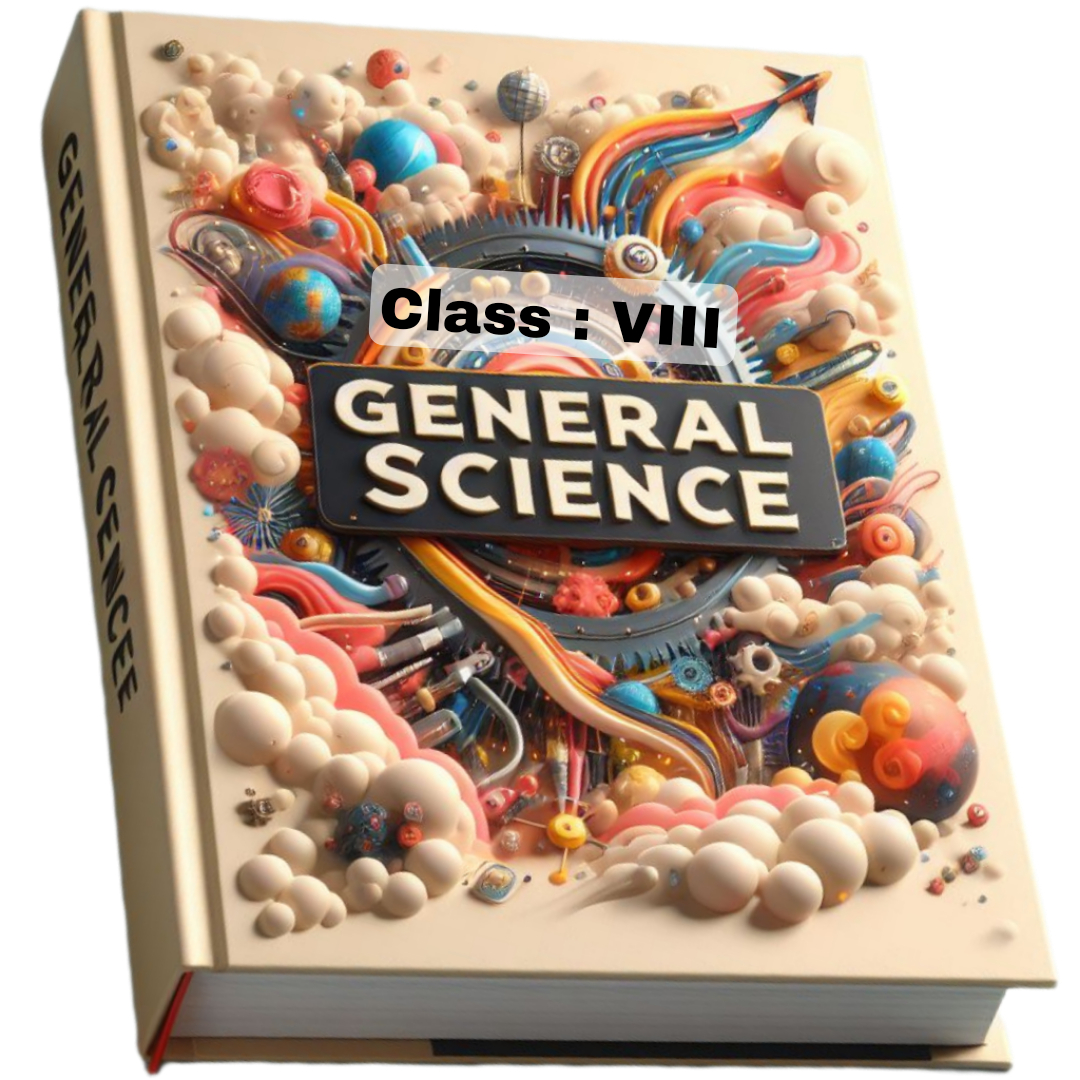Question 1. Examine the nature of political theory. Assess its significance in the study and practice of politics.
Answer :📗 (in 1167 words)
Introduction :
Political theory is a foundational branch of political science that explores the philosophical, ethical, and conceptual foundations of political life. It involves the systematic study of ideas such as justice, freedom, equality, and power, and seeks to understand their application within the realm of politics. By engaging with both historical and contemporary political ideas, political theory provides the intellectual tools to evaluate and critique political institutions, practices, and ideologies. This assignment examines the nature of political theory and assesses its significance in the study and practice of politics.The Nature of Political Theory :
At its core, political theory seeks to answer fundamental questions about how societies should be governed and the nature of political authority. It is not merely concerned with the "what" of politics (the actions and policies of governments) but focuses primarily on the "why" of politics—why certain actions, policies, or systems of governance are justified, desirable, or legitimate. Political theorists delve into concepts such as justice, rights, liberty, the common good, and democracy, using both historical and modern philosophical perspectives.Political theory can be classified into several categories, which include normative political theory, descriptive political theory, and analytical political theory:
1. Normative Political Theory :
2. Descriptive Political Theory :
3. Analytical Political Theory :
Political theory also engages with a range of ideologies, including liberalism, conservatism, socialism, feminism, and post-colonialism, among others. Each of these ideologies presents a distinct vision of political order and often leads to debates about the ideal role of the state, the rights of individuals, and the distribution of resources in society.
Significance of Political Theory in the Study of Politics :
Political theory plays a crucial role in both the study and practice of politics. In terms of its academic significance, it provides students and scholars with the tools to analyze political structures, ideologies, and the relationships between the state and individuals. Political theory informs a wide range of sub-disciplines within political science, such as comparative politics, international relations, public policy, and political sociology.1. Understanding Political Ideals and Values :
Political theory is essential for understanding the core values that underpin political systems. Ideas like democracy, human rights, justice, equality, and liberty, though seemingly straightforward, have complex philosophical foundations that political theory helps to illuminate. By studying political theory, students gain a deeper understanding of how these ideals evolved, how they have been contested, and how they continue to shape political discourse today (Rawls, 1971).
2. Providing a Framework for Political Critique :
Political theory allows scholars and practitioners to critically engage with existing political structures and ideologies. By comparing different political systems and evaluating them based on theoretical principles, political theorists can highlight the strengths and weaknesses of various forms of governance. For example, the works of Karl Marx provide a critical framework for understanding capitalism (Marx, 1867), while feminist political theorists critique the exclusionary nature of traditional political institutions (Tong, 2009).
3. Formulating and Justifying Political Action :
In the realm of practice, political theory is essential for justifying political action and policy decisions. Leaders and activists often turn to political theory to construct arguments for the legitimacy of their policies. For example, theories of justice, such as those proposed by John Rawls in his Theory of Justice, offer a framework for discussing distributive justice and can help guide policy decisions on income inequality, healthcare, and education (Rawls, 1971).
4. Bridging the Gap Between Ideal and Real Politics :
While political theory is often associated with the ideal or philosophical realm, it also offers valuable insights into the practical realities of politics. Political theorists like Niccolò Machiavelli and Thomas Hobbes focused on understanding the power dynamics and human nature that influence political decisions (Machiavelli, 1532; Hobbes, 1651). By engaging with both idealistic and pragmatic perspectives, political theory helps to bridge the gap between the world of ideals and the world of political practice.
Significance of Political Theory in the Practice of Politics :
The relevance of political theory extends beyond academic circles into the practical realm of governance, public policy, and activism. Political theory informs political decisions, shapes ideologies, and often serves as a basis for political movements and reforms. In modern democracies, political leaders and policymakers often rely on political theory to craft speeches, justify decisions, and align their political agendas with broader philosophical values. Political theory also empowers citizens by providing them with the tools to critically evaluate the actions of their governments and participate more effectively in democratic processes.1. In Shaping Political Movements :
Throughout history, political theory has played a central role in shaping political movements and revolutions. The ideas of John Locke about natural rights and the social contract were central to the American Revolution (Locke, 1689), while the writings of Marx were instrumental in inspiring socialist and communist movements worldwide (Marx, 1867).
2. In Political Leadership and Governance :
For political leaders, a sound understanding of political theory is vital for effective governance. Political theory helps leaders assess the legitimacy of their power, the distribution of resources, and the protection of rights. Modern political theory offers insights into the challenges of governing diverse societies, managing conflicts, and ensuring justice and fairness for all citizens (Dahl, 1989).
3. In Public Policy and Justice :
The theories of political philosophers provide the frameworks for discussing justice, equality, and the distribution of resources in society. These ideas help policymakers address critical social issues such as poverty, healthcare, education, and civil rights. The practical application of political theory in policymaking ensures that decisions are grounded in ethical considerations (Sen, 2009).
Conclusion :
Political theory, by examining the nature of political ideals, institutions, and practices, remains essential for the study and practice of politics. It not only provides the intellectual foundation for understanding the complex dynamics of power and governance but also serves as a critical tool for assessing and improving political systems. Its significance lies in its ability to shape political ideologies, inform political decisions, and empower individuals to engage more effectively in the political process. Through political theory, we are better equipped to understand, critique, and ultimately improve the political systems that govern our lives.
Answer :📗 (in 556 words)
Introduction :
Political theory is a core area of political science that explores the philosophical, ethical, and conceptual foundations of political life. It seeks to answer fundamental questions about how societies should be governed, the nature of political authority, and the moral principles that guide political action. By engaging with historical and contemporary ideas, political theory helps to evaluate political institutions, practices, and ideologies, offering both theoretical insights and practical applications.The Nature of Political Theory :
At its heart, political theory addresses the “why” of politics—why certain political systems, actions, or policies are justified or desirable. It explores concepts such as justice, liberty, equality, and power, which form the basis for evaluating governance and political behavior. Political theory is divided into several categories:1. Normative Political Theory :
This branch focuses on what should be, exploring ethical values and ideals such as justice and fairness. Thinkers like John Locke and John Rawls have contributed significantly to normative theory by discussing the social contract and principles of justice (Locke, 1689; Rawls, 1971).
2. Descriptive Political Theory :
Descriptive theory examines how politics operates in practice, focusing on the actual distribution of power, institutions, and political behaviors without prescribing what ought to be. This perspective helps to understand the functioning of political systems.
3 Analytical Political Theory :
Analytical theory uses logic, reasoning, and empirical data to evaluate political concepts and systems. It often seeks to clarify complex political arguments and theories.
Political theory also addresses a range of ideologies, such as liberalism, socialism, feminism, and conservatism, each offering different visions of political order and the role of the state.
Significance of Political Theory in the Study of Politics :
Political theory is crucial in understanding political systems and ideologies. It provides the framework for analyzing political behavior, institutions, and relationships. By engaging with key political values like justice, liberty, and equality, political theory allows scholars and students to better comprehend the philosophical underpinnings of different political systems (Rawls, 1971).1. Understanding Political Ideals :
Political theory helps in understanding the fundamental principles that shape political systems. For instance, the theory of justice proposed by John Rawls provides a framework for assessing fairness in political and economic systems (Rawls, 1971).
2. Critiquing Political Systems :
By comparing different political systems and evaluating them through theoretical lenses, political theory allows scholars to critique existing political structures. Karl Marx’s critique of capitalism, for example, reveals the inherent inequalities in capitalist systems (Marx, 1867).
3. Guiding Political Action :
Political theory informs the formulation of political policies and actions. Leaders and activists use political theory to justify decisions, such as Rawls’ theory of justice, which has influenced debates on income inequality and public welfare (Rawls, 1971).
Significance in Political Practice :
Political theory also plays a crucial role in the practice of politics. It informs political movements, policy decisions, and governance. For instance, John Locke’s ideas about natural rights were foundational in the development of liberal democracy, particularly in the American Revolution (Locke, 1689). Political theory also empowers citizens to critically engage with political institutions and decisions, helping them advocate for more just and equitable policies.Conclusion :
Political theory is integral to both the study and practice of politics. It provides the intellectual tools for understanding political ideals, evaluating systems of governance, and critiquing political actions. Through political theory, scholars and practitioners are better equipped to engage with political issues and advocate for just and ethical governance.References :
- Locke, J. (1689). Two treatises of government. Awnsham Churchill.
- Marx, K. (1867). Das Kapital. Verlag von Otto Meissner.
- Rawls, J. (1971). A theory of justice. Harvard University Press.
Question 2. Analyze Gramsci's views on Hegemony and the State.
Answer :📗 (in 678 words)
Introduction :
Antonio Gramsci, an Italian Marxist philosopher and political theorist, developed a distinctive and influential analysis of power, hegemony, and the state. His ideas, primarily articulated in his Prison Notebooks (1929-1935), offer a critical extension of classical Marxist theory by emphasizing the role of culture, ideology, and consent in maintaining political power. This assignment explores Gramsci’s views on hegemony and the state, focusing on how he challenges traditional Marxist notions of domination and revolution.Hegemony : Consent and Ideology—
Gramsci’s concept of hegemony goes beyond traditional Marxist notions of class struggle as an economic or material conflict. For Gramsci, hegemony refers to the ways in which the ruling class maintains dominance, not just through coercion and force, but also by securing the consent of the subordinate classes. This consent is achieved through the control of ideas, cultural institutions, and social practices that shape people's perceptions of reality and their understanding of their place in the social order.In Gramsci’s view, the ruling class secures its dominance by promoting a worldview that appears natural and inevitable, thereby preventing resistance or alternative ways of thinking. This cultural leadership is essential in creating a “common sense” that justifies the status quo. He argues that while the state’s coercive apparatus (police, military, legal system) maintains order through force, it is the ideological and cultural institutions (such as the media, religion, education, and art) that ensure the long-term stability of the ruling class’s power (Gramsci, 1971).
The Role of Civil Society :
Gramsci differentiates between two aspects of the state: political society and civil society. Political society includes the formal institutions of government and law that directly enforce the will of the ruling class through force. Civil society, on the other hand, encompasses the network of cultural institutions, organizations, and practices that influence public consciousness and behavior. Gramsci argues that the balance between these two spheres is crucial for maintaining hegemonic power. While political society can control through repression, civil society plays a more subtle, yet powerful, role in shaping consent.In his analysis, Gramsci stresses the importance of counter-hegemony, or the process through which subordinate groups create their own ideologies and institutions to challenge the dominant worldview. Revolutionary change, therefore, involves not only the overthrow of political power but also the creation of a new cultural consensus that aligns with the interests of the oppressed. This requires the construction of a “counter-hegemonic” bloc that can unite various social groups around a common vision of justice and equality.
The State : Integral and War of Position—
Gramsci’s conception of the state is also central to his theory of power. Unlike traditional Marxist views, which see the state primarily as a tool of the ruling class to enforce its economic interests, Gramsci emphasizes that the state is a complex and contested space. He introduces the idea of the "integral state," which includes both political society and civil society. The state, in this sense, is not just a repressive force but a site of continuous ideological struggle.Gramsci distinguishes between two types of political struggle: the "war of movement" and the "war of position." The war of movement refers to direct, violent confrontation—such as revolution or insurrection—while the war of position refers to the gradual process of building alternative cultural institutions and ideologies that can challenge the dominant hegemony. Gramsci argues that in modern capitalist societies, a war of position is more effective in achieving lasting change, as it seeks to win the ideological battle for hearts and minds before attempting to overthrow the state (Gramsci, 1971).
Conclusion :
Gramsci’s views on hegemony and the state provide a nuanced understanding of power that goes beyond mere economic domination and coercion. His theory of hegemony emphasizes the importance of consent, culture, and ideology in maintaining political power. By focusing on the role of civil society and the construction of counter-hegemony, Gramsci offers a strategy for revolutionary change that involves both political and cultural transformation. His ideas have had a lasting impact on Marxist theory and continue to influence contemporary political thought, particularly in understanding how power operates in advanced capitalist societies.References :
- Gramsci, A. (1971). Selections from the prison notebooks of Antonio Gramsci (Q. Hoare & G. N. Smith, Eds.). International Publishers.
Answer :📗 (in 774 words)
Introduction :
The subaltern perspective on justice challenges conventional understandings of justice that often prioritize the experiences, values, and voices of the dominant groups in society. Rooted in postcolonial theory and critical social thought, the subaltern perspective brings to the forefront the struggles and aspirations of marginalized communities—such as the poor, racial minorities, women, indigenous populations, and colonized peoples. This perspective critiques mainstream legal and philosophical definitions of justice by emphasizing the historical, social, and political contexts that shape the experiences of those who are excluded from dominant power structures. This assignment critically examines the subaltern perspective on justice, exploring its origins, key ideas, and contributions to contemporary political theory.The Origins of the Subaltern Perspective :
The term "subaltern" was popularized by Italian Marxist theorist Antonio Gramsci to describe groups that are socially, politically, and geographically outside of the hegemonic power structures. For Gramsci, subalterns are those who do not have a voice within the dominant political, economic, or cultural systems. Later, scholars from the Subaltern Studies group, particularly from South Asia, expanded on Gramsci’s ideas by focusing on the experiences of colonized and oppressed peoples. Key thinkers like Gayatri Spivak, Ranajit Guha, and Partha Chatterjee analyzed how subaltern groups are silenced by colonial powers and dominant social structures, giving rise to a subaltern perspective on justice that is deeply concerned with the lived experiences of the marginalized.Subaltern Justice : Critiquing Mainstream Conceptualizations—
Traditional Western theories of justice, such as those articulated by John Rawls or Immanuel Kant, often take for granted the existence of a liberal democratic state that guarantees individual rights, equality, and fairness. These frameworks assume that all individuals are afforded the same opportunities to access justice, which fails to account for the historical and structural inequalities that shape the lives of subaltern groups. The subaltern perspective critiques this universality by arguing that justice cannot be defined in abstract, ideal terms without considering the material conditions and historical context of marginalized communities.For example, Gayatri Spivak’s seminal essay Can the Subaltern Speak? (1988) questions the ability of subalterns to express their own needs and desires within dominant power structures, particularly when their voices are systematically excluded or misrepresented. She argues that justice for the subaltern cannot be achieved through traditional legal frameworks or moral principles that assume a level playing field. Instead, true justice requires the deconstruction of the colonial and capitalist structures that continue to marginalize subaltern groups (Spivak, 1988).
The Role of Representation and Voice :
A central tenet of the subaltern perspective on justice is the importance of representation and voice. In mainstream political thought, justice is often viewed as something that can be imposed from above, through legal frameworks or institutional reforms. In contrast, the subaltern perspective stresses that justice must emerge from the lived experiences and self-representations of marginalized groups themselves. This requires not only giving subaltern groups the means to articulate their own struggles and identities but also recognizing their autonomy in defining what justice means for them.For instance, in postcolonial contexts, justice involves the recovery and validation of indigenous knowledge, cultural practices, and communal forms of justice that may differ from Western legal traditions. Subaltern thinkers argue that justice should not be a one-size-fits-all concept imposed by dominant institutions, but should instead be rooted in the historical and cultural contexts of oppressed communities.
Criticism and Challenges :
While the subaltern perspective on justice provides valuable insights into the limitations of mainstream justice frameworks, it is not without criticism. One critique is that the focus on identity and cultural autonomy can sometimes lead to relativism, where the concept of justice becomes so context-specific that it undermines the possibility of universal human rights or shared principles of justice. Additionally, there is the challenge of representation itself—who gets to speak for the subaltern, and how can the voices of the oppressed be truly heard without being co-opted by the powerful?Despite these challenges, the subaltern perspective on justice remains an important contribution to political theory. It shifts the focus from abstract ideals of justice to the practical realities of social struggle, power, and inequality.
Conclusion :
The subaltern perspective on justice provides a critical lens through which to analyze traditional conceptions of justice that often overlook the experiences of marginalized groups. By emphasizing the need for representation, voice, and context-specific understandings of justice, the subaltern perspective challenges dominant power structures and advocates for a more inclusive and equitable approach to justice. While it faces challenges, particularly in terms of avoiding relativism and ensuring true representation, its contributions remain vital in advancing more just political systems that are responsive to the needs of all people, especially those who have been historically excluded.References :
- Spivak, G. C. (1988). Can the subaltern speak? In C. Nelson & L. Grossberg (Eds.), Marxism and the interpretation of culture (pp. 271-313). University of Illinois Press.
Question 4. Examine Francis Fukuyama's views on "End of History".
Answer :📗 (in 718 words)
Introduction :
In 1992, Francis Fukuyama’s essay, "The End of History?" and his subsequent book, The End of History and the Last Man (1992), provoked intense debates in political theory and international relations. Fukuyama argued that the end of the Cold War and the triumph of liberal democracy marked the culmination of humanity's ideological evolution. According to Fukuyama, liberal democracy had emerged as the final, most coherent political system, signaling the “end of history” in terms of ideological development. This assignment critically examines Fukuyama's views on the "End of History," focusing on its implications for politics and its critics.The Concept of the "End of History" :
Fukuyama’s notion of the "End of History" does not imply that historical events or political developments will cease to occur. Rather, he argued that the major ideological conflicts that had shaped human history — from monarchy and feudalism to socialism and fascism — had been resolved. The fall of communism, the collapse of the Soviet Union, and the spread of liberal democracy around the world, according to Fukuyama, marked the final stage in the ideological evolution of human societies. Liberal democracy, which emphasizes individual rights, the rule of law, free markets, and democratic governance, had triumphed over alternative ideologies like communism, fascism, and nationalism.In this context, Fukuyama used the term “end” metaphorically to signal the final victory of one particular ideological system. Drawing on Hegelian philosophy, Fukuyama suggested that history, understood as a dialectical process of conflicting ideologies, had reached its apex with the consolidation of liberal democratic principles. The "end of history" meant that there were no longer any viable alternatives to liberal democracy in the ideological realm.
Theoretical Foundations : Hegel and Marx—
Fukuyama’s argument is rooted in the philosophical traditions of Hegel and Marx, particularly their ideas about history as a process of development driven by human ideas and conflicts. Fukuyama adapted Hegel’s idea of a “rational progression of history” towards freedom, where societies evolve through stages of development and contradictions (Fukuyama, 1992). For Fukuyama, liberal democracy represented the resolution of humanity’s deepest contradictions, especially the conflict between individual freedom and state authority.Fukuyama also drew from Marx’s historical materialism, which argued that history was driven by economic forces and class struggles. While Marx predicted the eventual rise of a classless, stateless society in the form of communism, Fukuyama believed that the collapse of communism signaled the failure of Marxist predictions and the ultimate victory of democratic capitalism.
Implications of Fukuyama's Thesis :
Fukuyama’s thesis had profound political implications. By declaring that liberal democracy was the "end" of ideological evolution, he suggested that the major conflicts of the 20th century — such as the struggle between communism and capitalism — had been resolved. This led to optimism about the future of democracy, with the assumption that the world was moving toward greater political stability and prosperity.However, Fukuyama's argument also implied that alternative political systems would increasingly be viewed as outdated or illegitimate. His thesis, therefore, had significant implications for global politics, particularly in terms of the spread of democracy and the marginalization of non-democratic ideologies.
Criticism of Fukuyama's Thesis :
Fukuyama’s “end of history” thesis has been widely criticized on several fronts. Critics argue that Fukuyama underestimated the resilience of authoritarian regimes and the persistence of political ideologies that are resistant to liberal democracy. For example, the rise of Islamic fundamentalism and the resurgence of authoritarianism in countries like Russia and China challenge Fukuyama’s optimistic view of a world dominated by liberal democracy (Mamdani, 2004).Furthermore, some critics argue that Fukuyama’s thesis is overly Eurocentric, as it assumes that Western liberal democracy is the endpoint for all societies. In reality, many countries have different cultural, political, and historical contexts that may not conform to the liberal democratic model (Zakaria, 1997).
Conclusion :
Francis Fukuyama’s "End of History" thesis presents a provocative and optimistic view of the future of liberal democracy, arguing that the ideological evolution of humanity had reached its zenith with the triumph of liberalism. While his thesis inspired significant debate and generated widespread discussion, it has faced substantial criticism for its Eurocentrism, idealism, and over-simplification of global political trends. Despite its limitations, Fukuyama’s work remains an important contribution to the study of political theory and international relations, prompting ongoing debates about the future of democracy and the dynamics of global politics.References :
- Fukuyama, F. (1992). The end of history and the last man. Free Press.
- Mamdani, M. (2004). Good Muslim, bad Muslim: America, the Cold War, and the roots of terror. Pantheon Books.
- Zakaria, F. (1997). The future of freedom: Illiberal democracy at home and abroad. W.W. Norton & Company.
Question 5. Examine the impact of plastic pollution on marine environments and human health.
Answer :📗 (in 639 words)
Introduction :
Plastic pollution has become one of the most pervasive environmental challenges of the 21st century, affecting ecosystems and human health across the globe. The widespread use and disposal of plastic products have resulted in significant environmental degradation, particularly in marine environments. This assignment examines the impact of plastic pollution on marine ecosystems and human health, highlighting its ecological consequences and the potential risks to human well-being.Impact on Marine Environments :
Marine ecosystems are particularly vulnerable to plastic pollution due to the sheer volume of plastic waste entering the oceans. It is estimated that 8 million metric tons of plastic are dumped into the oceans every year, contributing to the vast accumulation of plastic debris in the marine environment (Jambeck et al., 2015). Plastics, which are non-biodegradable, persist in the ocean for hundreds of years, breaking down into smaller pieces known as microplastics. These microplastics are ingested by a wide variety of marine organisms, from plankton to large marine mammals, disrupting the food chain.The accumulation of plastic in the oceans also leads to the degradation of coral reefs, which are vital to marine biodiversity. Studies have shown that plastic debris, particularly plastic bags and fishing nets, can smother coral reefs, blocking sunlight and damaging coral tissue (Lamb et al., 2018). In addition, the ingestion of plastics by marine animals can lead to physical harm, suffocation, and even death. Turtles, seabirds, and fish are especially at risk, often mistaking plastic for food, leading to internal injuries, malnutrition, or starvation.
The presence of plastics in marine environments also has broader ecological consequences. Plastics can carry toxic chemicals, such as pesticides and heavy metals, which are absorbed by marine organisms. These chemicals accumulate up the food chain, posing risks to marine biodiversity and the broader health of marine ecosystems.
Impact on Human Health :
The impact of plastic pollution is not confined to marine life. As plastic waste enters the ocean, it also affects human health through the consumption of contaminated seafood. Microplastics, which are ingested by marine organisms, can accumulate in seafood species such as fish, shellfish, and mollusks, which are commonly consumed by humans. A growing body of research has raised concerns about the potential health risks associated with the ingestion of microplastics, including the possibility of toxic substances leaching from plastics into the human body (Smith et al., 2018).Although the full extent of the health risks remains uncertain, studies suggest that the chemicals in plastics, such as bisphenol A (BPA) and phthalates, may interfere with hormone regulation, contribute to developmental disorders, and increase the risk of cancer and other health conditions (Rochman et al., 2013). Additionally, plastic pollution can enter human food chains not only through seafood consumption but also through contaminated drinking water, as microplastics have been detected in freshwater sources globally (Kosuth et al., 2018).
Policy Responses and Solutions :
Addressing the impact of plastic pollution on marine environments and human health requires coordinated global action. International agreements, such as the United Nations’ Clean Seas campaign, aim to reduce plastic waste and promote sustainable practices. Governments and industries are also adopting measures to reduce plastic production, improve recycling efforts, and promote the use of biodegradable alternatives. However, tackling plastic pollution also requires changes in consumer behavior, including reducing single-use plastic consumption and increasing public awareness about the environmental and health risks of plastic waste.Conclusion :
Plastic pollution is a significant threat to both marine ecosystems and human health. The persistence of plastic waste in oceans leads to the destruction of marine habitats, harm to marine life, and contamination of the human food supply. The complex interplay between ecological damage and health risks underscores the urgency of addressing plastic pollution through policy, industry innovation, and consumer behavior changes. Only through collective global action can the tide of plastic pollution be turned to protect both our oceans and human health.References :
1. Jambeck, J. R., Geyer, R., Wilcox, C., et al. (2015). Plastic waste inputs from land into the ocean. Science, 347(6223), 768-771.
Link: https://doi.org/10.1126/science.1260352
2. Kosuth, M., Penn, T., & Willis, K. (2018). A quantitative analysis of the microplastic content of bottled water. Frontiers in Environmental Science, 6, 1-7.
3. Lamb, J. B., Willis, B. L., & McCormick, M. I. (2018). Plastic waste associated with coral reefs in the Indo-Pacific. Science, 359(6374), 42-45.
Link: https://doi.org/10.1126/science.aao2240
4. Rochman, C. M., Browne, M. A., & Halden, R. U. (2013). Classify plastic waste as hazardous. Science, 339(6121), 764-765.
5. Smith, M., Love, D. C., & Rochman, C. M. (2018). Microplastics in seafood and the implications for human health. Current Environmental Health Reports, 5(3), 375-386.
Link: https://doi.org/10.1007/s40572-018-0206-z

.jpg)

.jpg)













0 Comments